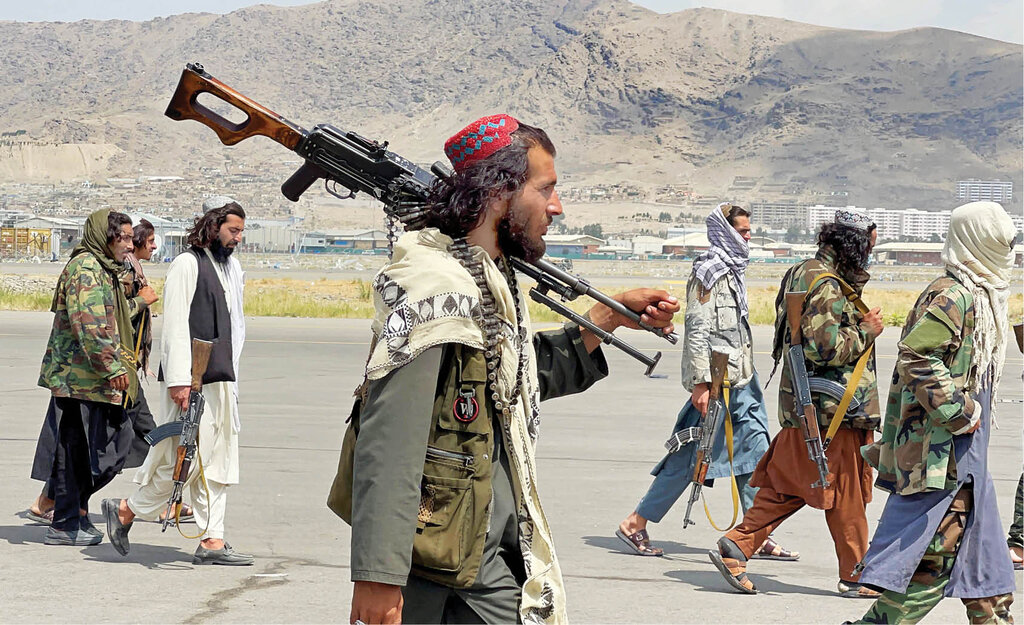In terms of security, Afghanistan is still dealing with many problems, some of which should be found in America’s “security strategies” in Afghanistan, the most important of which are the following:
One: “Continuing to play a role in Afghanistan”; America’s withdrawal from Afghanistan, which was a “strategic failure” in the words of General Mark Milley, the former head of the Joint Chiefs of Staff of the US Armed Forces, never means “the end of Afghanistan’s importance” in the US foreign policy. The US has ended its only military mission in Afghanistan and still needs to “play a role in Afghanistan” to advance its regional and international goals, including confronting Russia, China and Iran.
Currently, China is the “biggest winner of America’s exit” from this country due to the expansion of its influence and economic and commercial presence in Afghanistan; A subject that is in no way digestible for Americans.
Russia and Iran continue to follow appropriate trends in the development of foreign relations in the political, economic and security fields with Afghanistan; This is exactly the point that the Biden administration has been criticized for domestically, even by the Democrats.
Two: “Restoration of US presence and influence” in Afghanistan; This is the current White House policy in this country, but not in military form. Washington is facing a major obstacle in this field, and that is the “lack of intelligence infrastructure” necessary for this work; The “official structure” of US intelligence and security in Afghanistan, which during the occupation period consisted of a huge organized network of several tens of thousands of people and were present in various institutions and organizations, has completely collapsed today.
In Afghanistan, there is no “official” institution, organization or mechanism with which America interacts and communicates with in line with its intelligence and security goals. As John Bolton, the national security adviser of the Trump administration, has emphasized, the White House has effectively lost its “intelligence access” in Afghanistan. Even in the surrounding environment and nearby countries, America does not have any air base for military, security, etc. operations in Afghanistan.
Three: “America’s espionage activities in Afghanistan”; The collapse of official US intelligence and security structures in Afghanistan does not mean that Washington is not aware of the internal developments of this country. America’s spying activities continue in an “unofficial” and “proxy” form in Afghanistan, the effects of which can be seen in the terrorist incidents and explosions that occur in this country under different guises.
Although the American espionage network in Afghanistan does not have an “official structure”, it is “active” even inside the Taliban; As Washington could easily target Ayman al-Zawahiri.
Four: “Recovery of intelligence espionage networks in Afghanistan”; Although the United States has reduced its hand from Afghanistan and does not have the former physical and military presence in this country, it is not sitting idle and in line with its regional goals, including confronting Russia, China, and Iran, it is in the process of “recovering” its spy networks and intelligence mechanisms in Afghanistan.
In addition, American think tanks and strategists suggest to the Biden government to start consultations with some countries, including India, Pakistan, Tajikistan and Uzbekistan, with the aim of establishing an air base, in which apparently effective measures are being taken in Uzbekistan.
Five: “Afghanistan swamping strategy”; Considering the set of points that have been said and also, the “need” that the White House has for Afghanistan, especially in the security and political aspects, has caused Afghanistan to be noticed again by Washington. For this reason, General Mackenzie, the former commander of the Centcom terrorist organization, has spoken about the possibility of “the return of American forces to Afghanistan” in recent days.
In addition, America follows two specific strategies in Afghanistan; First, the “far-horizon strategy” means targeting individuals and groups that are considered a threat in the eyes of the United States, and second, the “swamp-making strategy” means turning Afghanistan into a war and terrorism zone to threaten the security of Iran, Russia, and China.
Conclusion
In the end, it should be emphasized that the “vigilance” and “policy coordination” of China, Russia and the Islamic Republic of Iran in relation to America’s espionage actions and activities in Afghanistan is a “strategic necessity” because America even “uses” the tools of ISIS to advance its political and security goals.
Daesh is a tool that has a “dual function” for America; It creates security threats for China, Russia and Iran, and creates trouble for the Taliban by confusing the situation. There is an important point here, and that is the misconception of equating Daesh with the Taliban, while not only are they not related to each other, but the Taliban has been publishing books refuting Daesh for years.
It should not be forgotten that many Afghan soldiers and spies trained by the US have joined the ranks of Daesh under the “supervision and guidance” of the White House. America has used all its power to influence the internal developments of Afghanistan. Therefore, America’s strategic mistake in Afghanistan should not be allowed to be “compensated and repaired” and this country will remain empty again for American adventure and Afghanistan’s enemies.










0 Comments